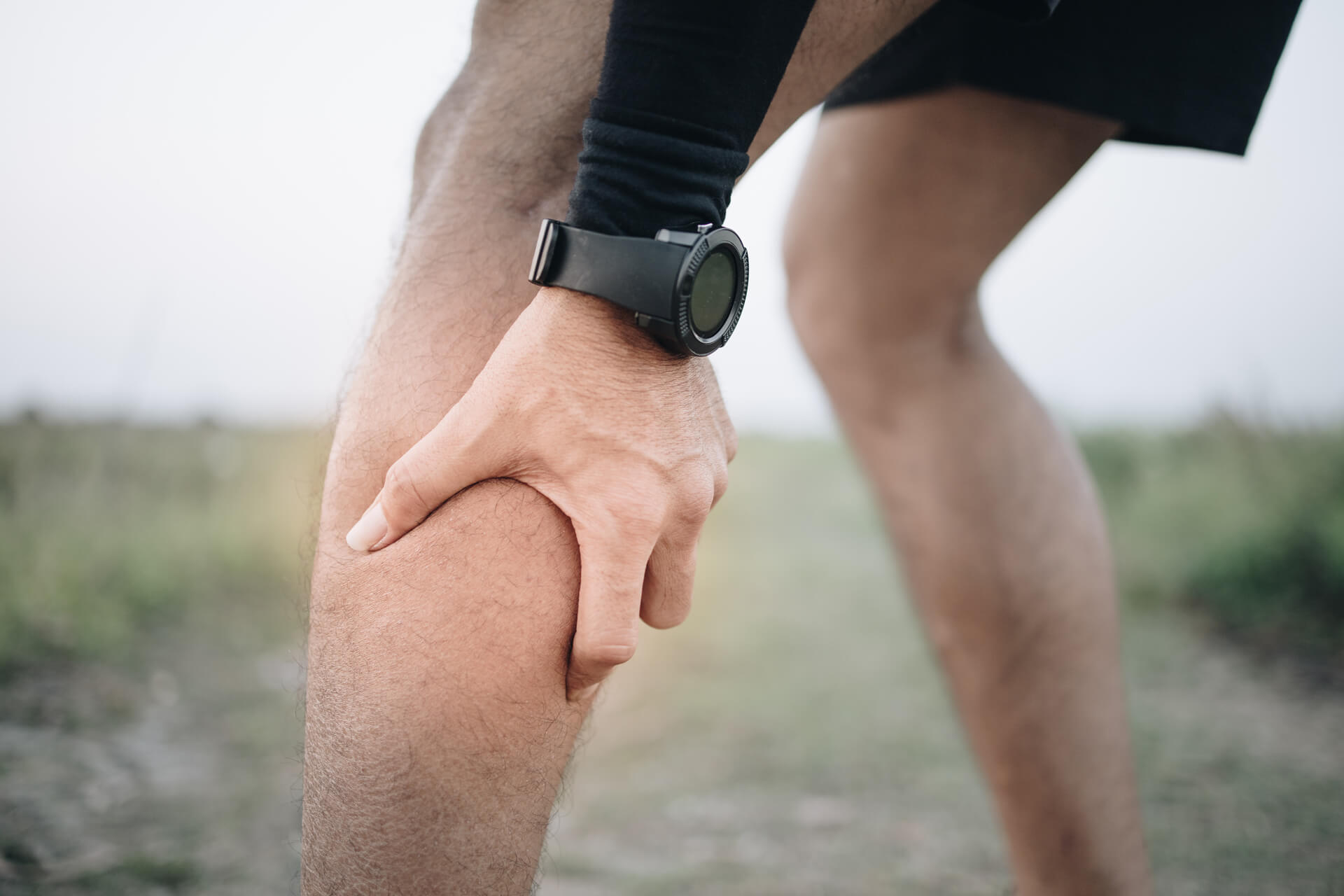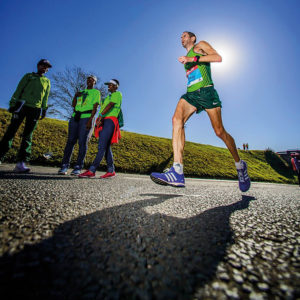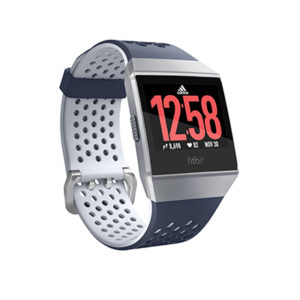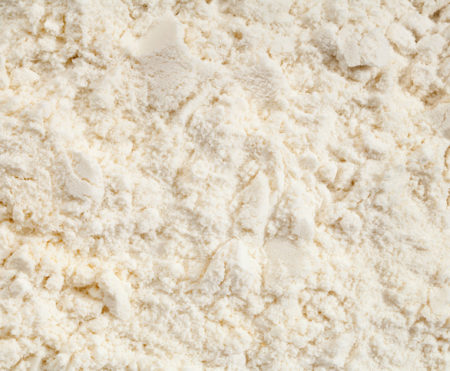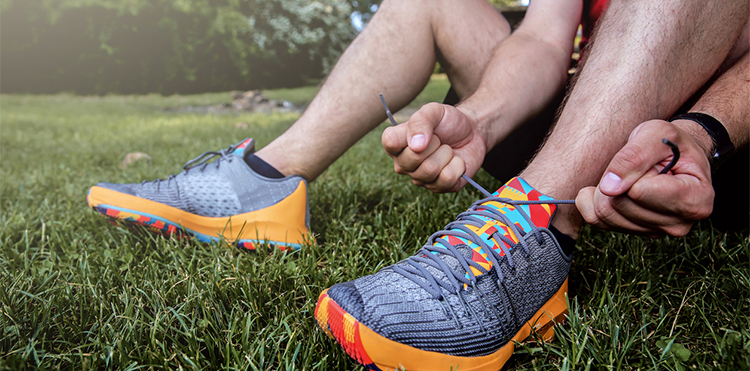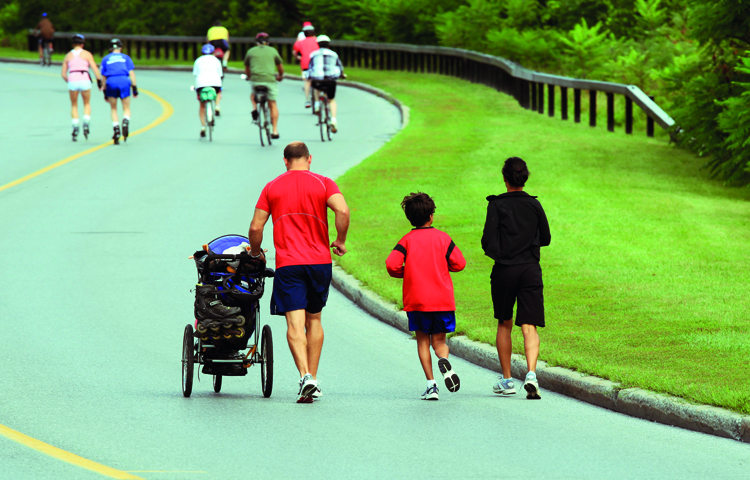
“The health of your kids does not start with their birth – it starts with you, right now, well before you plan to impregnate your wife.” So says Pratik Patil in Pregnancy And Men, and hopefully, whether you’re a dad or not, you’ve taken care of that. The problems start once your pride and joy has emerged, blinking and screaming, into the daylight.
“Once your child is born your priorities change and you simply won’t remember all that free time you had before it arrived,” says Andy Lane professor of sports psychology at the University of Wolverhampton. “It creates a massive awareness that time is precious, and that can turn people off running – but it can also make you more organised.” And that, in turn, can make you a better runner.
Firstly, there’s the job of fitting running in. “Finding time for training, recovery and good nutrition can be difficult, so staying motivated is important,” says coach Andy Blow (myh2pro.com). “Family is clearly a priority, but many runners find a bit of time out to recharge by going for a run can be helpful. Running to and from work and in lunch hours are ways of fitting it in.”
Crucially, this requires making a deal with your partner. “The decision to train can’t be taken in isolation,” says Lane. “You need to sit down as a family and agree that both of you will have, say, one hour a day to themselves. You need to give each other that space, where one of you takes charge of the nappies and the other has a break.”
Then you need to commit. “Parents can feel guilty about abandoning their partner, but this can be motivational,” Lane adds. “You need to think, ‘If I’m going to dump this on my partner I’d better make it worthwhile.’ If you look at your life before the baby there are plenty of ‘dead hours’, and when you’re time-pressed you need to be more focused.”
“It’s about maintaining a sense of self,” says coach Tom Craggs (runningwithus.com). “You don’t stop being you when you become a parent. You still have all of your passion, but now you’re passing it on to your kids.”
Family planning
So you’ve struck a deal and you’ve got your running shoes on. The next step is to ensure that you’re not simply treading water, and that comes from planning. “Many people, especially in their twenties, run without really having a structured training plan,” says Lane. “But increasingly we eat up sports science for breakfast. People know about training zones, lactate threshold and the like, and these days there are far more training plans available for people to follow. You’re more likely to make gains if you follow a focused plan than if you simply run random amounts, and for a new father it comes back to making every session count. Having a baby is a wake-up call and you have to get the most bang for your buck when you do have time to run.”
For all of us – particularly those who plod away for long distances – the possibilities are endless. “Do short, intense sessions that release endorphins and stimulate testosterone and anabolic hormones,” suggests Craggs. “You’re going to be tired, but there’s a difference between physical and mental fatigue, and getting out of the front door will give you more energy and help fight the mental tiredness. Now’s also a good time to do some strength and core work – you can do this at home with your family around rather than go out for a three-hour run when you’re knackered.”
Rest and nutrition are also crucial, and should never be neglected. “You can’t control your baby waking up at 2am, so work on the things you can control,” says Craggs. “Nutrition is one of them. It doesn’t have to suffer. If beer interferes with your sleep, maybe that didn’t matter before you were a dad, but now it does, so maybe have one beer instead of three. Greater fatigue means you won’t pay as much attention to rest and nutrition, and then you’ll get colds, injuries and niggles and you may well plateau. You need to focus on real rest and recovery whenever you can.”
Your sleep is likely to suffer, but you don’t need 10 hours a night. “The key is to sleep in cycles rather than hours,” says sleep coach Nick Littlehales (sportsleepcoach.com). “Sleep should be timed to the 90-minute periods of REM and non-REM that make up the body’s natural cycle. Waking at 6.30am means going to sleep at 9.30pm, 11pm, 12.30am or 2am – but not in between. When plans change, go to sleep at 12.30am or even 2am. It’s a shorter sleep but it’s still in harmony with natural sleep cycles. Then match your training to your sleep patterns, so you run for 90 minutes and sleep for 90 minutes, or run for 30 minutes and have a half-hour nap.”
Remember, when you are mentally tired, that physical activity will help you sleep better. “There are many biological factors that come into play, such as endorphins,” Littlehales adds. “For me it helps the brain file away that day, which is one of key sleep barriers. Running makes the body and mind exercise everything its got, and the reward is that it wants to recover positively – no exercise, negative recovery, poor sleep. If don’t try to maintain your running, sleep fatigue will build until you’re in a poor mental and physical state, which will impact on you and everyone around you and get worse every day. And what makes it worse is that infants pick up on bad vibes.”
Superdad!
The proof that you can get better is out there, and you may well find some yourself if you get talking to members at your local running club. “I’ve coached a lot of dads who have got better after having children,” says Craggs. “I work with one club runner who was due to become a dad in March. We talked in January and agreed the marathon probably wasn’t a great idea this year, so he focused on other things. His baby arrived and in April he set PBs for the 5K, 10K and half marathon. Becoming a dad can make you less obsessive – because running is now just one important thing in your life rather than the most important thing – and you relax, which can actually improve your racing.”
If that doesn’t convince you, here are some final thoughts. Various studies compiled by the Fatherhood Institute have found that toddlers’ activity is linked to their father’s (but not their mother’s) BMI, that nearly a quarter of three-year-olds in the UK are overweight or obese, that fatter fathers have fatter sons, that a father’s physical activity predicts their adolescent children’s overall physical activity and that in the UK there are more overweight fathers than there are mothers: 54% of 25 to 34-year-olds and three-quarters of 35 to 44-year-olds. You owe it to your kids.
3 fast fathers
Ones to avoid in the dad’s race at school sports day
Mo Farah
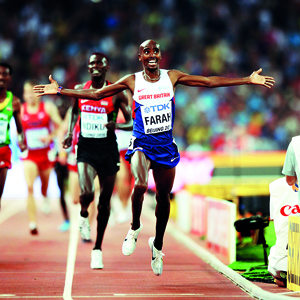
Credit: Mark Shearman
The 2012 Olympics might have been the beginning of the end for the Mobot. Not only had Mo Farah reached the peak of his career by winning the 5,000m and 10,000m double on home soil, he had dedicated the victory to his twin daughters, who were born days later. They joined his step-daughter Rhianna and were themselves joined last year by baby brother Hussein, yet neither nappies nor school runs could prevent Mo from repeating the double at last year’s World Championships.
Richard Whitehead
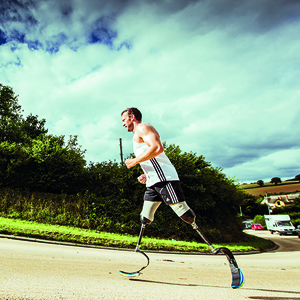
Credit: David Baird
The double amputee is a Paralympic hero, having won the T42 200m final at the 2012 Games in a world record of 24:38. He became a dad not long after, but it hasn’t slowed him down – he won the 2013 and 2015 world titles, the latter last October in a new world record of 24:10. He also holds world records in the marathon and half marathon, and in 2013 ran 40 marathons in 40 days from Land’s End to John O’Groats.
Michael Wardian
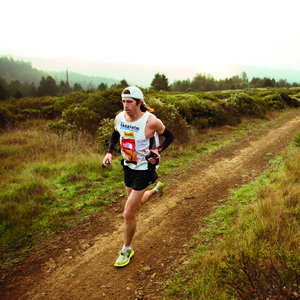
Credit: The North Face
The 42-year-old American marathon and ultramarathon runner has competed in – and won – many of the most gruelling long-distance races in the US and around the world. Yet arguably his finest and certainly his craziest achievement was setting a world record for the fastest marathon while pushing a baby stroller, in a time of 2:42:21 back in 2007. The record has since been broken, but Wardian’s kids are a little too big for prams these days…


